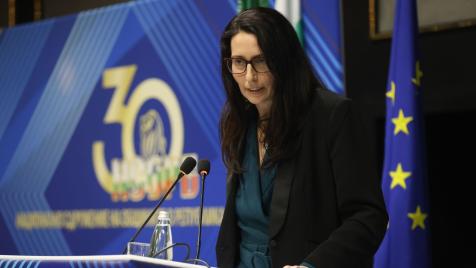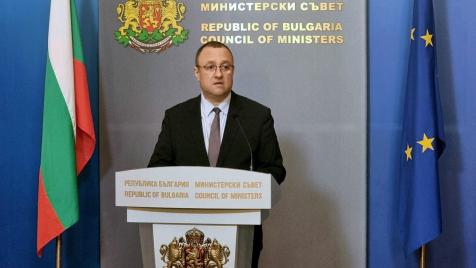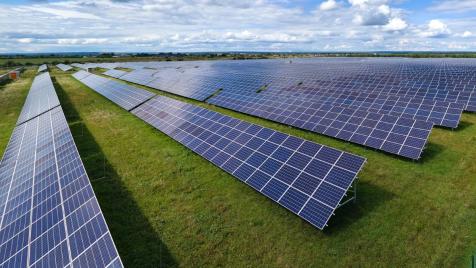Grain port terminal and new IT specialists: How Bulgaria invested €782 million from the EIF
The country ranks second in the EU in terms of cohesion investments from the European Investment Fund in 2023

© ECONOMIC.BG / Depositphotos
Bulgaria is second in the EU in terms of cohesion investments of the European Investment Fund (EIF) - the European Investment Bank’s (EIB) division of risk financing. Last year these investments amounted to 782 million euros. Ahead of Bulgaria is only Romania with 2.092 billion euros of EIF investments.
A vital tool
The EIF was particularly active in Central and Eastern Europe in 2023, strengthening its commitment to the countries, economies and people of the region, thus making a significant contribution to European Cohesion Policy.
In 2023, the Fund invested a total of 14.9 billion euros, teaming up with around 300 partner institutions across Europe and providing financing to more than 350,000 small businesses, infrastructure projects, households and individuals, and mobilizing 134 billion euros for the European economy. The EIF's commitments for credit guarantees, venture capital investments and private capital for the cohesion regions in 2023 amount to 6.8 billion euros, which represents 49 per cent of the total EIF commitments in the EU. The biggest beneficiaries are Romania, Bulgaria, Poland, France and Italy.
The EIF contributes to economic and social cohesion in the European Union through a full range of financial instruments – portfolio guarantees, equity investments, securitization, private loans and infrastructure funds. Under its intermediary model, the EIF works through a range of different types of partners, including banks, venture capital and equity funds, and private credit and infrastructure funds.
Recognized as a vital tool for economic development, the financing of SMEs and start-ups is at the heart of EIF activities. The EIF promotes economic and social cohesion by actively developing the venture and private capital ecosystems in Europe, with a focus on less developed markets with identified funding gaps. This ensures a constant flow of financial support for local businesses and equal opportunities for businesses across Europe.
The Bulgarian projects
Bulgaria has mainly benefited from investments to improve the storage of agricultural produce and the training of personnel in the field of information technology. Here are some examples of how important these tools are.
One such project is that of Buildcom Group, which is building a large new port terminal in Varna on the Black Sea coast. Bulgarian ports are becoming increasingly important starting points on the food supply route from Ukraine to the rest of the world, according to the EIB. But bottlenecks around ports lead to additional CO2 emissions and additional costs for shippers, transport operators, businesses and ultimately consumers.
Addressing the lack of infrastructure in Bulgarian ports became even more urgent when Russia invaded Ukraine in 2022. The port of Constanta (in Romania) was overwhelmed by the increase in Ukrainian grain, but the cargo could not be transferred to Varna as its port was not equipped to handle the additional ships and grain.
A 50-million-euro loan from the EIB will help modernize the port of Varna, support food security, promote greener maritime transport, and stimulate economic growth in the region by improving export market access for local farmers. The loan is supported by the InvestEU programme.
The new terminal will allow some port handling operations to be transferred from the current location near the city centre to a more remote location on Lake Beloslav near Varna. It will also open the way for more and larger vessels by increasing the depth of the quays to 13.5 meters and enable the implementation of a modern grain storage and transport system, as well as new processing equipment, new rail and road access, utility networks and technical and administrative buildings. The port expansion will ultimately reduce road transport, shifting cargo to less carbon-intensive sea transport.
As part of the Skills and Education Guarantee Pilot, the EIF provided a direct financial guarantee on a loan received by Telerik Academy, an educational institution providing IT training in Sofia and specializing in software engineering and coding. The EIF loan guarantee enabled Telerik Academy to expand its offering and provide training to a wider audience.
It used to be that first school and then vocational training or university largely determined the type of professional life you would follow. But in the rapidly changing world we live in today, it is becoming more and more common for people to change their professional careers quickly. Doing so, however, often requires new skills that can be challenging and intimidating. Not for everyone though.
An example is Antoaneta Stefanova from Sofia, Bulgaria, who studied at a mathematics high school and pursued a career in the culinary world:
“I went to culinary school and worked in Michelin-starred restaurants as a pastry chef in the United States and the Netherlands,” she says. However, she decided that in the long run, she couldn’t do this job, as it was very physically demanding, having to spend long hours on her feet.
"It's not something you want to be doing when you're 50+, so I decided to refocus into something I could see myself doing for the rest of my working career."
Antoaneta dabbled with programming in high school, so she has a good idea of what it's about.
“I started with a book, learning the basics of coding, but then I signed up for this course to learn it more seriously.” Taking advantage of a deferred tuition payment plan partially guaranteed by the European Union, Antoaneta enrolled in a six-month computer programming course at Telerik Academy.
“…and then I got a job, just like that!
I presented my final course assignment to a company; it was chosen as the best project and I was invited for interviews and now I work for that company.”
Co-financed by the European Union. The views and opinions expressed, however, are entirely those of their author(s) and do not necessarily reflect the views and opinions of the European Union or the European Commission. Neither the European Union nor the European Commission is responsible for them.
Translated by Tzvetozar Vincent Iolov

 Economic.bg
Economic.bg 


